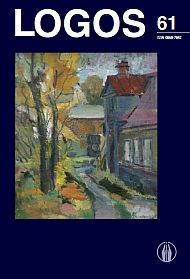Foucault: Apie Istorijos Atstumtą Beprotybę
M. Foucault: About Madness as Historical Condition
Author(s): Stanislovas MostauskisSubject(s): Anthropology, Psychology, Contemporary Philosophy, Structuralism and Post-Structuralism, Philosophy of Mind
Published by: Visuomeninė organizacija »LOGOS«
Keywords: Foucault; madness; pathology of mind; non-existence; differential gesture; anthropological type;
Summary/Abstract: The purpose of this article is to sketch the ontology of history suggested by the scholar of the postmodern mind, Michel Foucault, and at the same time to provide one of the possible answers to the question, “What most general assumptions have determined the modern type of human?”. The argued hypothesis is as follows: the concrete anthropological type named the Western human can be named through the relation with contents, the rejection of which has established the assumptions for the origin of that type. Foucault distinguishes between a “dialectic” perception of historical development based on selfevolving “positive” powers from something what doesn’t exist positively, but has power to establish such positive condition. Such separation is based on a fundamental ontological presumption: subsistence is not just a space that belongs to history, including all existing and possible positive facts. Subsistence is also that fertile emptiness which only allows the latter ones to exist. In other words subsistence is emptiness that can’t be grasped positively; it is nothingness rewarded with ontological authority.
Journal: LOGOS - A Journal of Religion, Philosophy, Comparative Cultural Studies and Art
- Issue Year: 2009
- Issue No: 61
- Page Range: 54-66
- Page Count: 13
- Language: Lithuanian

